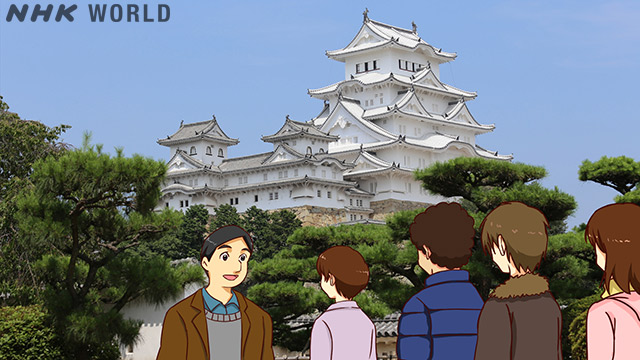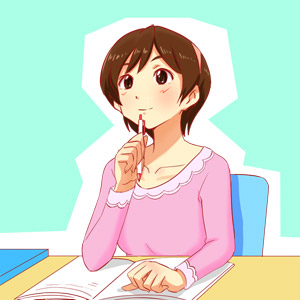Lesson 43
Why do you think it is?

Anna is on a study tour with her university. Today, she has come to Himeji Castle in Hyôgo Prefecture.
Key phrase:
DÔSHITE DESHÔ KA
Scripts
| 先生 | 姫路城は奇跡の城と言われています。 どうしてでしょうか。 |
Himeji Castle is said to be a miracle castle. Why do you think it is? |
|---|---|---|
| Teacher | HIMEJI-JÔ WA KISEKI NO SHIRO TO IWARETE IMASU. DÔSHITE DESHÔ KA. Himeji Castle is said to be a miracle castle. Why do you think it is?
|
|
| ロドリゴ | 戦争でも焼けなかったからです。 | Because it has never burned down even in wars.
|
| Rodrigo | SENSÔ DEMO YAKENAKATTA KARA DESU.
Because it has never burned down even in wars.
|
|
| アンナ | さすが、ロドリゴ! | Great, Rodrigo!
|
| Anna | SASUGA, RODORIGO!
Great, Rodrigo!
|
Grammar tips
DÔSHITE DESHÔ KA
 (Why do you think it is?)
(Why do you think it is?)
DÔSHITE means "why." To make DÔSHITE formal, use NAZE.
e.g.) NAZE DESHÔ KA.
Teach Us, Teacher
How to use DESHÔ
You use DESHÔ at the end of a sentence, when you talk about a prediction for the future or something uncertain. When you use it in combination with nouns or adjectives, you replace DESU at the end of a sentence by DESHÔ.
Sound Words
Sounds for correct/incorrect answer
Japanese is a language with lots of onomatopoeia. A wide range of onomatopoeia in the Japanese language, from noises made by animals to expressions of feelings, is explained by audio.
Anna's Tweets
Himeji Castle is also known as the White Heron Castle. A white heron is a kind of white bird. There are many theories for this. But a popular one is that the white castle looks like a white heron.

